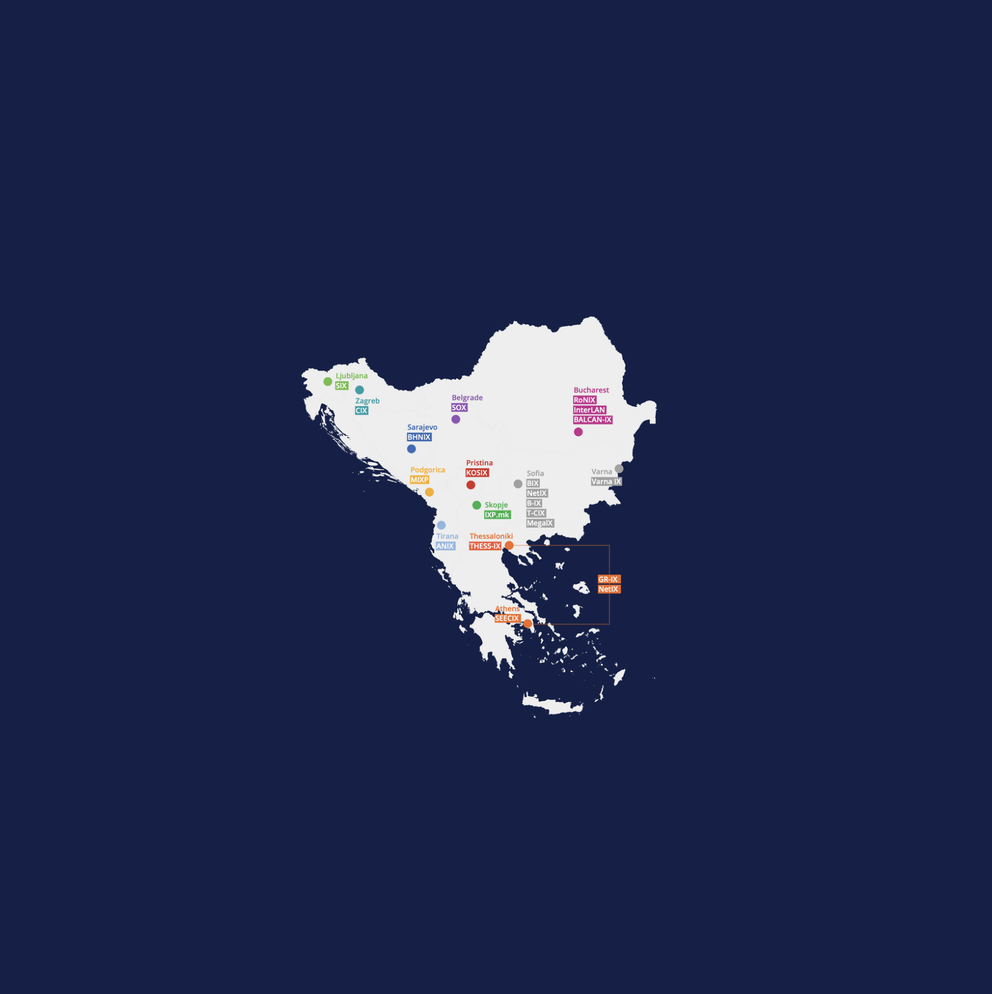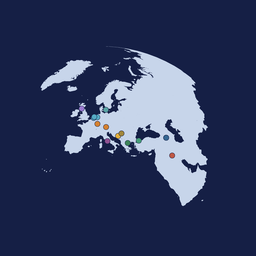How do we know when an IXP is working well? What goals should it achieve, and can success be measured in the same way everywhere? A new RIPE NCC report takes a closer look at these questions in the context of the SEE region.
Our latest report examines the current state of Internet Exchange Points (IXPs) in South East Europe (SEE) and their role in improving connectivity in the region. We apply our established framework of four success factors to assess whether IXPs in SEE are effectively meeting the needs of operators and Internet users.
Overview
The report is divided into four main parts. First, we look at the role IXPs play in reducing costs and improving performance by keeping local traffic local and avoiding sending traffic out of the region.
Second, we examine how IXPs can foster local interconnection to support the digital economy, highlighting the importance of open membership and neutral infrastructure.
Third, we explore how IXPs are working to attract international players and hyperscalers, which contribute significantly to IXP growth and acceleration of content delivery.
Finally, we look at how IXPs in SEE can position themselves as hubs for regional traffic exchange, improving resilience, reducing reliance on distant hubs like Frankfurt and Vienna, and strengthening regional interconnection.
We conclude with some forward-looking observations on the future of IXPs in the region and a series of recommendations to ensure the success of IXP operations.
Key findings
Key findings include:
- IXPs in SEE vary widely in governance and financial models, number of peers connected and traffic going over the exchange.
- Some exchanges, especially those run as a side project, or as an “ad-hoc” service provided by a research centre or university, risk stagnation unless they secure sustainable operational models and sufficient resources.
- Open and inclusive membership policies are crucial to attract diverse participants and strengthen local ecosystems.
- Greater investment in carrier-neutral data centres would make establishing and connecting to an IX easier, and it also encourages content players and service providers to come and peer at the same location and reach as many networks as possible, instead of doing it in a fragmented manner elsewhere
- IXPs should prioritise building stronger local communities around them over relying heavily on attracting international content players.
- A shortage of skilled IT professionals limits IXP operations and growth across SEE. Internally, IXPs require technical staff to run and maintain the exchange efficiently.
- Externally, operators and service providers need experienced peering personnel who understand the value of a robust and resilient peering strategy.
- Regulatory impacts on IXPs differ across countries. EU directives, such as NIS-2, may shape the future operations of IXPs in EU member states, influencing compliance requirements and operational practices.
This report is part of the series of Internet Country Reports that the RIPE NCC has produced in an ongoing effort to support Internet development throughout our service region by making our data and insights available to local technical communities and decision makers.
We hope this report is used to inform discussion, provide technical insight and facilitate the exchange of information and best practices.
The full report, along with all of the previous Internet country reports, is available on our RIPE NCC Country Reports page, or you can download it directly:
Data sources
We want to highlight the fact that these Internet country reports are largely based on publicly available data. We hope they give you an idea about the kind of data and analysis that's possible using RIPE NCC tools and services as well as other publicly available sources. If this report inspires you to learn more about those tools and maybe even explore what you can do with the data yourself, check out the following:
Let us know if you have any questions about the data contained in the report, the measurements tools we used, our analyses, or anything else.





Comments 0